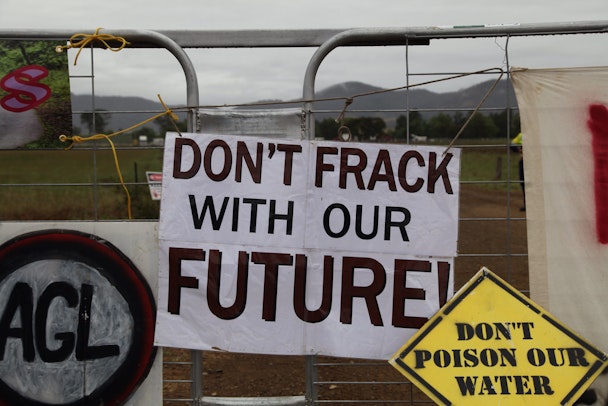ASA revokes ban on Greenpeace fracking advert
An advert by Greenpeace calling for the public to petition against government fracking plans that was banned by the Advertising Standards Agency in 2015 has had its ban revoked, with the UK advertising watchdog admitting its initial ruling was wrong.

Fracking
The ad, which first appeared in national press on 14 January 2015, stated that “fracking threatens our climate, our countryside and our water” and that “experts agree - it won't cut our energy bills”.

It was this claim that Lord Lipsey, who sits on the House of Lords economic affairs committee, took umbrage with. Lipsey, a fracking advocate, submitted a complaint to the watchdog claiming the ad was misleading in suggesting there is a consensus among experts that fracking would not cut energy bills.
Despite Greenpeace providing opinions from 22 energy experts including the energy secretary, leading academics, and three spokespersons from fracking firm Cuadrilla, the ASA ruled in favour of Lipsey in May 2015 and called for Greenpeace to withdraw the advert.
Greenpeace published an article on its site shortly after dismissing the ruling as “baseless, biased, and bonkers”, claiming the watchdog was able to quote the Prime Minister’s opinion that fracking would cut household energy bills as the only evidence of this alternative view.
The environmental organisation questioned the impartiality of the ASA council, stating that its chair Lord Chris Smith, has a second job as head of the Shale Task Force, a lobby group funded by fracking firms including Cuadrilla, Centrica and Total.
Greenpeace has been campaigning for an appeal of the ruling since. Today (21 September) the ASA council, following an investigation led by its independent reviewer, overturned its original ruling stating it “was not in breach” of advertising codes of practice.
The watchdog admitted that the “general consensus” among most was that a meaningful reduction in energy bills was highly unlikely.
“We acknowledged that among the material Greenpeace had provided, there were quotations indicating clearer support for the view that fracking would not reduce prices.”
“We therefore considered the claim as it was likely to be interpreted by readers had been substantiated and was not materially misleading,” it said.

